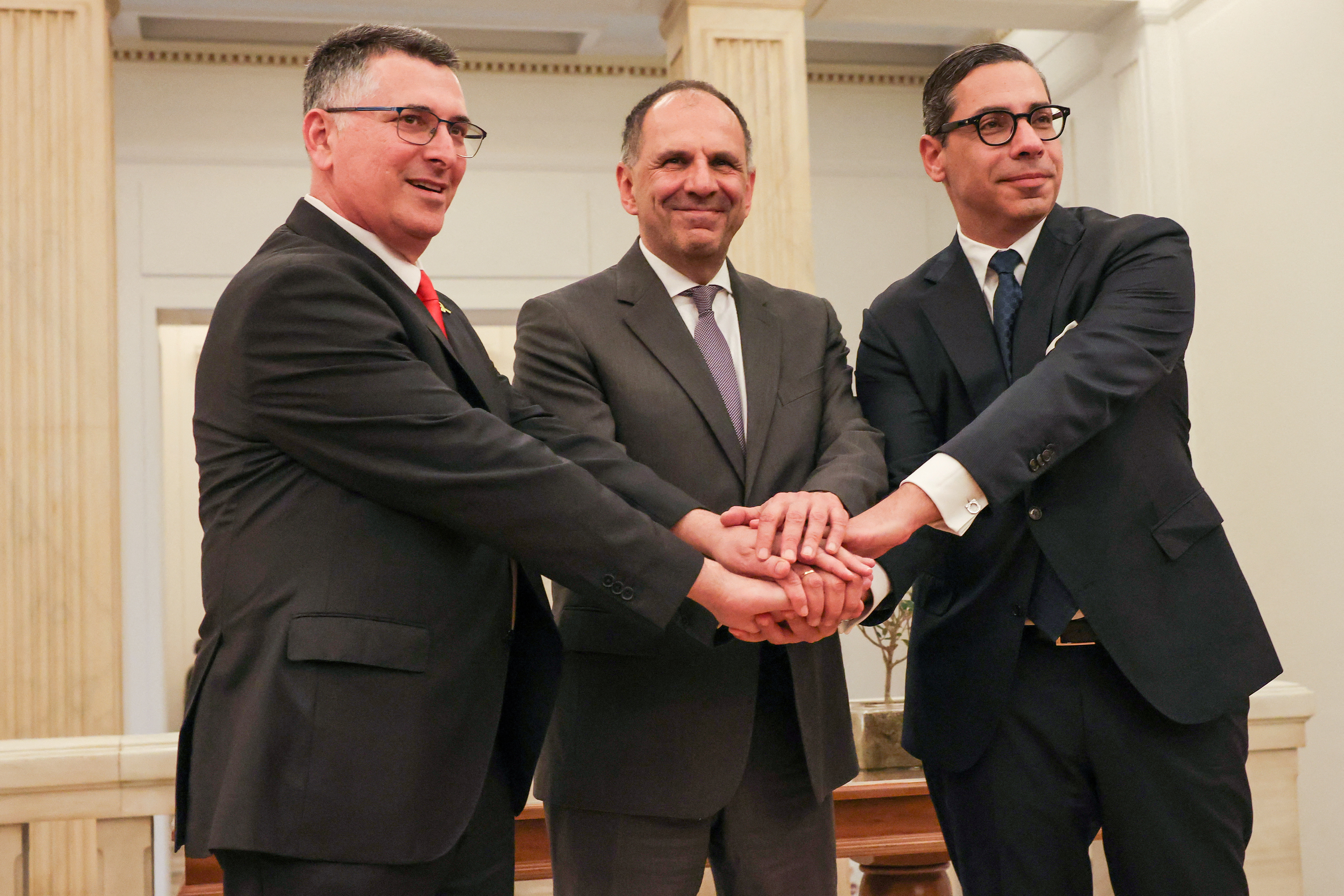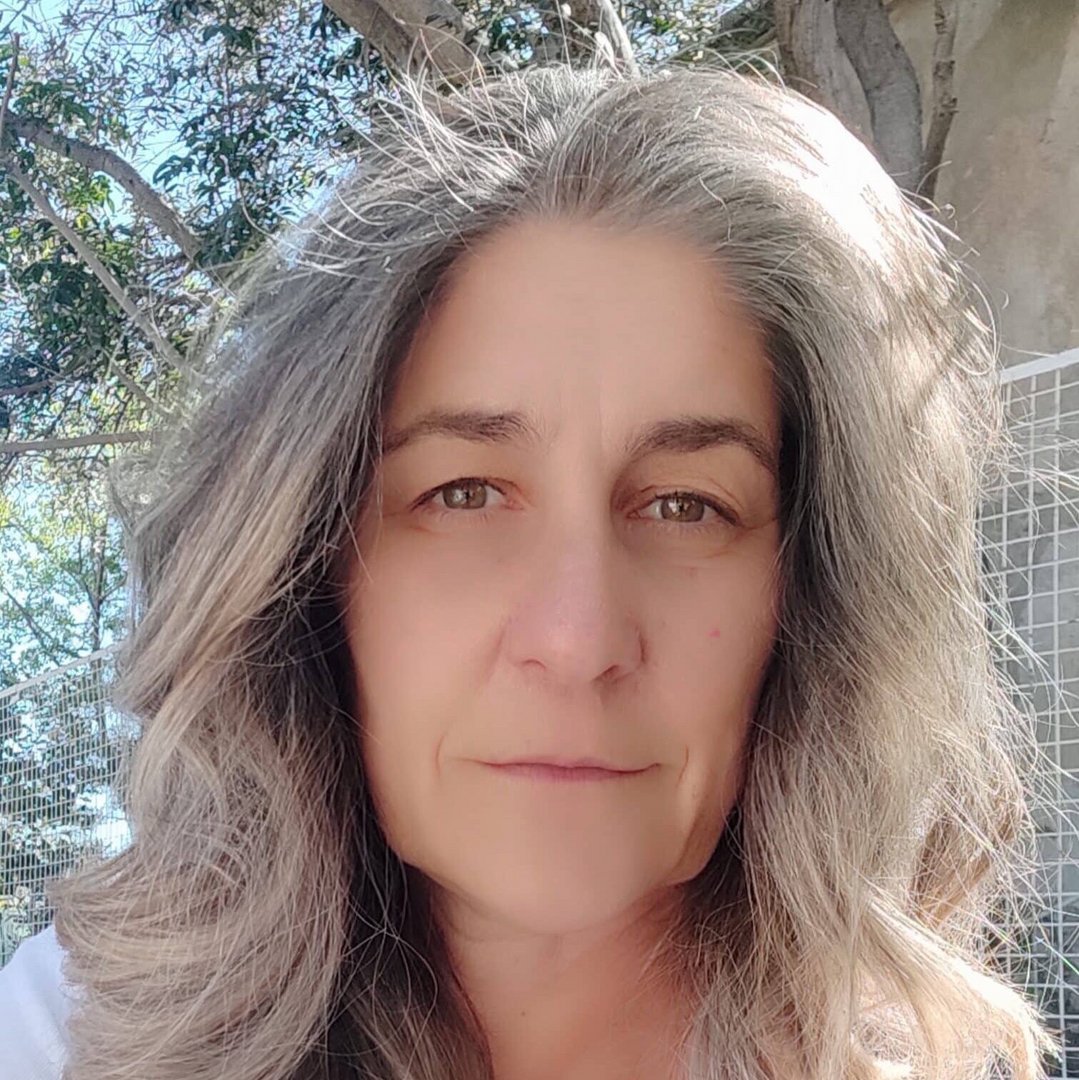The Cypriot, Greek and Israeli foreign ministers touched on trade and electrical interconnectivity between their states, and positioned themselves regarding the US, Gaza, Syria, and the Middle East during their trilateral meeting in Athens on Thursday.
Foreign Minister Constantinos Kombos said the states bore a common “strong will to reinvigorate” convening of the ‘3+1’ format [with +1 being the US].
The drive was based on the rationale that “the expanded format is a multiplier of US regional architecture potential in the Eastern Mediterranean,” Kombos said.
Discussions had focused on the theme of interconnectivity and the three ministers had discussed the IMEC initiative (an India-Middle East-Europe trade corridor).
Kombos said the three states agreed that they stood to reap common strategic benefits within the “geo-financial scope” of the IMEC project.
“Together, we constitute the Mediterranean link of this corridor through critical infrastructure, shipping, and skilled human resources,” Kombos said.
The minister added that the trio was positioned as “the south-eastern gateway to Europe” with a link to Asia through the Arabian Gulf and the Middle East. The connection would moreover “benefit the transatlantic relationship”, he said.
Addressing the Israel-Gaza conflict, Kombos said Cyprus had consistently condemned Hamas’ terrorist attacks and that it could not have a role in the future governance and security of Gaza.
“As a first step, the ceasefire agreement and the release of all hostages, as well as the return of the bodies of the victims, should be fully implemented. To this end, we support the mediation efforts of the United States and other countries,” he added.
Regarding Syria, Kombos expressed concern over the recent violent clashes, and condemned the crimes against Alawites, Christians and Druze.
“Descalation is a key priority to promote an inclusive, peaceful political transition […] without interference and influence from third parties,” the minister said, adding that the Syrian people deserve the right to enjoy the support of the international community.
Greek Foreign Minister George Gerapetritis speaking on the topic of interconnection, reiterated that the Great Sea Interconnector (GSI) project to link Greece and Cyprus to Israel via subsea cable, was certain to be implemented.
“It will be done and it will be completed,” he said.
Interconnectivity projects contribute to regional and global energy stability and security, he said, and assured that the GSI will continue “according to the schedule which will be finalised.”
On the topic of movement for the ‘3+1’ format Gerapetritis said he had spoken with US Secretary of State Marco Rubio and had received “a positive response in principle”.
As for developments in the Middle East, Gerapetritis said that Greece had condemned the Hamas attack and demanded an immediate and unconditional release of hostages.
Greece supports the uninterrupted flow of humanitarian aid to Gaza, he said.
The Greek minister added that a ceasefire provides incentives for the revival of a political process for a two-state solution in accordance with UN security council resolutions and “with recognition of Israel’s right to peace and security.”
Gerapetritis said Greece condemned the atrocities in Syria.
Israeli Foreign Minister Gideon Saar said the events of October 2023 had radically altered the situation and Israel would not agree to anything less than “the complete demilitarisation of Gaza, the end of the presence of Hamas, and the return of hostages”, adding that the outcome of ongoing Doha talks was “unpredictable”.
“With our friend Mr Trump we have a chance to fix things,” he said.
Speaking on the matter of humanitarian aid to Gaza, Saar said, “in 42 days, 25,000 truckloads of humanitarian aid entered, which is currently 50 per cent of Hamas’ budget, which they use to recruit new terrorists and we have to keep this in mind.”
He called on Syria to “be careful in its relations with Turkey” and said Ankara had enabled forces to enter Lebanon in support of Hezbollah.







Click here to change your cookie preferences